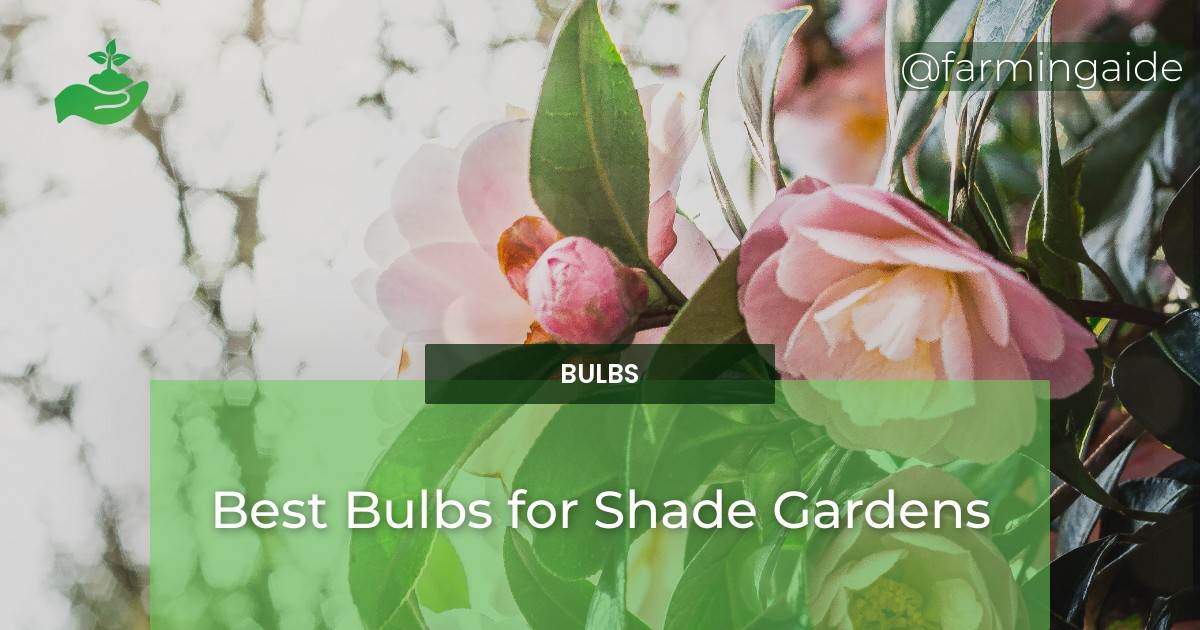Shade gardening can be a challenging task, but with the right bulbs, it can be an enjoyable and rewarding experience. With many plants requiring full sun to thrive, finding the right bulbs for shade gardens can be a daunting task, but fear not!
We have compiled a comprehensive list of the best bulbs for shade gardens and shaded areas that will make your garden pop with vibrant colors and beautiful textures.
Table of Contents
Top 5 Bulbs that Thrive in Shaded Areas
1. Hostas
Hostas are a popular shade-tolerant plant that produces stunning foliage in various shapes, sizes, and colors. They do well in moist soil and grow best in partial to full shade. Hostas are low maintenance, and their thick leaves help to keep the soil moist, making them an excellent option for your shade garden.
2. Daffodils
Daffodils are a perfect addition to any shade garden. They produce large, vibrant flowers that bloom in early spring and require minimal maintenance. Daffodils prefer well-drained soil and partial to full shade. They can be planted in clusters or mixed in with other shade-tolerant flowers.
3. Snowdrops
Snowdrops are a beautiful and hardy bulb that blooms in late winter to early spring. They prefer well-drained soil and partial shade but can tolerate full shade. Snowdrops are easy to plant and maintain, making them a must-have for any shade garden.
4. Bluebells
Bluebells are a popular shade-tolerant plant that produces stunning blue-purple flowers that bloom in late spring. They prefer well-drained soil and partial to full shade. Bluebells are low maintenance and can be planted in clusters or mixed in with other shade-tolerant flowers.
5. Fritillarias
Fritillarias are beautiful bulb that produces bell-shaped flowers in late spring to early summer. They prefer well-drained soil and partial to full shade. Fritillarias are easy to plant and maintain, making them a great addition to your shade garden.
Factors to Consider When Choosing Bulbs for Shade Gardens
Soil Type
When choosing bulbs for your shade garden, soil type is an important factor to consider. Most shade-tolerant plants prefer well-drained soil that is rich in organic matter.
Water Drainage
Water drainage is another crucial factor to consider when choosing bulbs for your shade garden. Most shade-tolerant plants prefer soil that is moist but not waterlogged.
Light Levels
Most bulbs that thrive in shaded areas prefer partial to full shade. However, it’s important to pay attention to the light levels in your garden to ensure that your bulbs get the right amount of light.
Temperature Tolerance
Temperature tolerance is another essential factor to consider when choosing bulbs for your shade garden. Most shade-tolerant plants prefer cool temperatures and can struggle in hot weather.
Overall Garden Design
When choosing bulbs for your shade garden, it’s important to consider the overall garden design. Choose bulbs that complement your existing plants and color scheme.
Planting and Caring for Shade Garden Bulbs
When to Plant
Most shade-tolerant bulbs should be planted in the fall, so they have time to root before the winter frost. However, some bulbs can be planted in early spring.
How to Plant
When planting bulbs in your shade garden, it’s important to follow the planting instructions carefully. Most bulbs should be planted at a depth of 2-3 times their height.
Watering Tips
Most shade-tolerant bulbs prefer moist soil, so it’s important to water them regularly. However, be careful not to overwater, as this can lead to root rot.
Fertilization Guidelines
Most shade-tolerant bulbs don’t require much fertilizer. However, adding a slow-release fertilizer to the soil before planting can help to improve growth.
Pest and Disease Control
Most shade-tolerant plants are relatively pest and disease-free. However, it’s still important to keep an eye out for common garden pests like slugs and snails.
Conclusion
Shade gardening can be a rewarding experience, especially when you choose the right bulbs for your garden. By considering factors like soil type, water drainage, light levels, temperature tolerance, and overall garden design, you can create a beautiful and vibrant shade garden that will thrive for years to come. So, whether you’re planting hostas, daffodils, snowdrops, bluebells, or fritillarias, your shade garden is sure to be the envy of your neighborhood.


